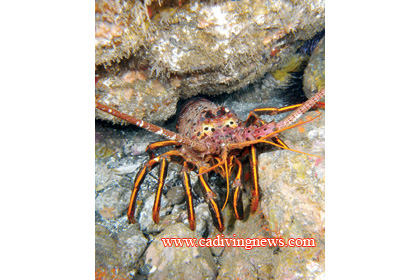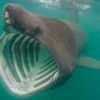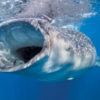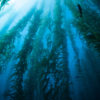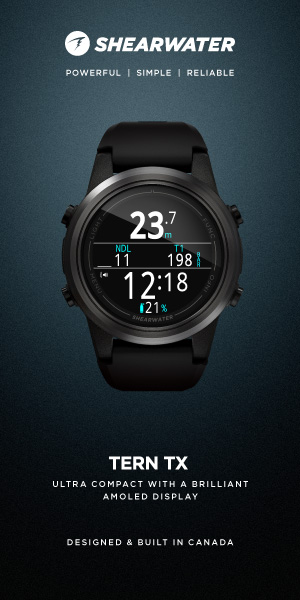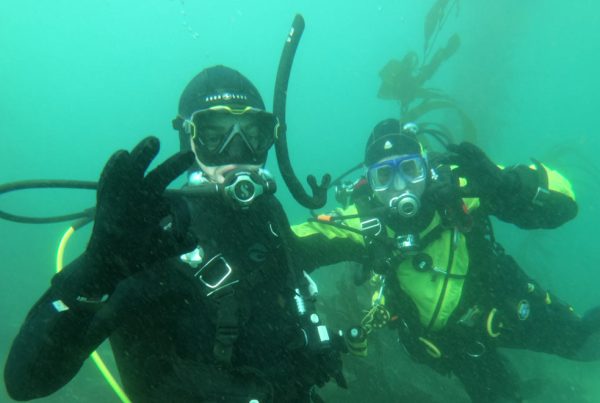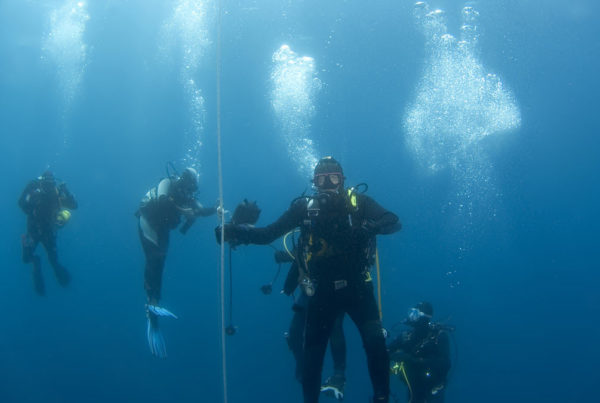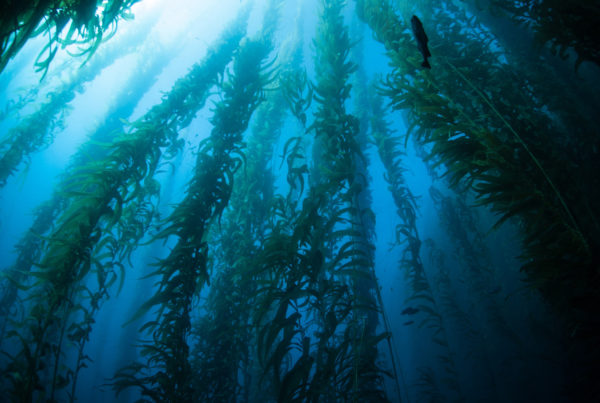We’ve all heard the excuse many times. It’s too cold, too late, or too close to dinner. Seems a lot of divers talk about a night dive, but when it comes time for the neoprene to meet the skin, many bow out. This is often their loss since night dives can be some of the most unusual and beautiful dives you will ever experience.
Your dive light focuses your attention in a small area and encourages you to see things you would have otherwise missed. You may overlook the shrimp on the gorgonian during the day since you may be overwhelmed with the expansive reef, but at night you focus on a smaller part of the reef. Water absorbs red and orange light preferentially, and diving deeper than 30 feet during the day can be bland. However, at night your dive light brings reds and oranges to the party, and colors at night seem much more vivid. Then there are the “children of the night.” No, we are not talking about mythical creatures from Transylvania. Basket stars open up and feed only at night, as do many corals. Octopuses leave the safety of their dens to hunt at night along with eels, certain fish, and, arguably, the tastiest seafood of all – the lobster.
The biggest difference between day and night diving is at night you only see what your light illuminates. It takes a little time to get comfortable with the concept that you must think about where you point your light. It is especially important that you point your light down when descending. It is a bad idea under any circumstances to crash land on a reef, and at night it can be very painful. Urchins feed at night, and you do not want to land on these pincushions. Urchins are the best reason to learn good buoyancy skills — the knees you save may be your own. For a similar reason you should point your light up when ascending — boats have hard bottoms.
You will need a good dive light, and divers have different opinions on which type is the “best.” Many like a big, powerful, wide-angle light. This is great if you want to “change night into day.” Such a light is good if you don’t want to miss anything. It does have the disadvantage that it may be too bright and frighten the creatures of the night away. Under bright illumination, gorgonians and basket stars close up, and light-avoiding fish and octopus scurry away.
As a photographer I like to get close to my night-loving subjects and shoot them with minimal impact, so generally I prefer a small, narrow beam, medium power light. Such a light is strong enough to find your subjects but not too strong to scare them away. If you only illuminate light-sensitive subjects with the edge of your beam, you stand a good chance of getting a natural looking photograph. Another trick to get close to light-sensitive subjects is to put a red filter on your light. You can find colored filters in sheets at stores that sell theatrical supplies and cut to fit your light. Some lights come with red lenses as optional accessories. Oceanic creatures don’t see red very well, and the red light optimizes your chances of seeing and photographing night critters with minimum disturbance.
It is wise to dive a site during the day before attempting to dive it at night. If you dive from shore you will need to place two lights, one above and behind the other to mark your exit. In urban areas you can use streetlights or other artificial sources. If you dive from a commercial charter boat, they will have a lighting system in place and suggest how to use it. Each diver should have a locator light positioned on a high point of his or her gear, usually on a valve. Small battery-powered lights are ideal.
Buddies should discuss prior to the dive what various light signals mean. Normally, a circular motion signals “OK,” and a vertical motion “distress,” and use a repeating horizontal motion to get your buddies attention. Never shine your light directly in your buddy’s eyes; this will ruin his or her vision for some time.
You should not be too concerned about your light going out. First of all your buddy will be there to help out, although it is wise to have a backup light. Even without a light there is often enough background light from the moon, boat, or shore to have partial vision. In fact, it is sometimes fun to deliberately turn your light off and enjoy the solitude. Try turning your light out, giving your eyes a few moments to adjust to the darkness, and wave your hand in front of your face. You will then understand the inspiration for the Eagles’ phrase “and sparks fly from her finger tips.” The oceans are filled with bioluminescent bacteria that shine brightly when disturbed.
Not every dive site is a good night diving site. I define a good night diving location as one where you can see things that you would not normally see during the day. There are many California sites where lobsters, octopus, and other critters come out only at night. If you want to see them you will need to dive when they are active. So lose the excuses, and enjoy the night.

